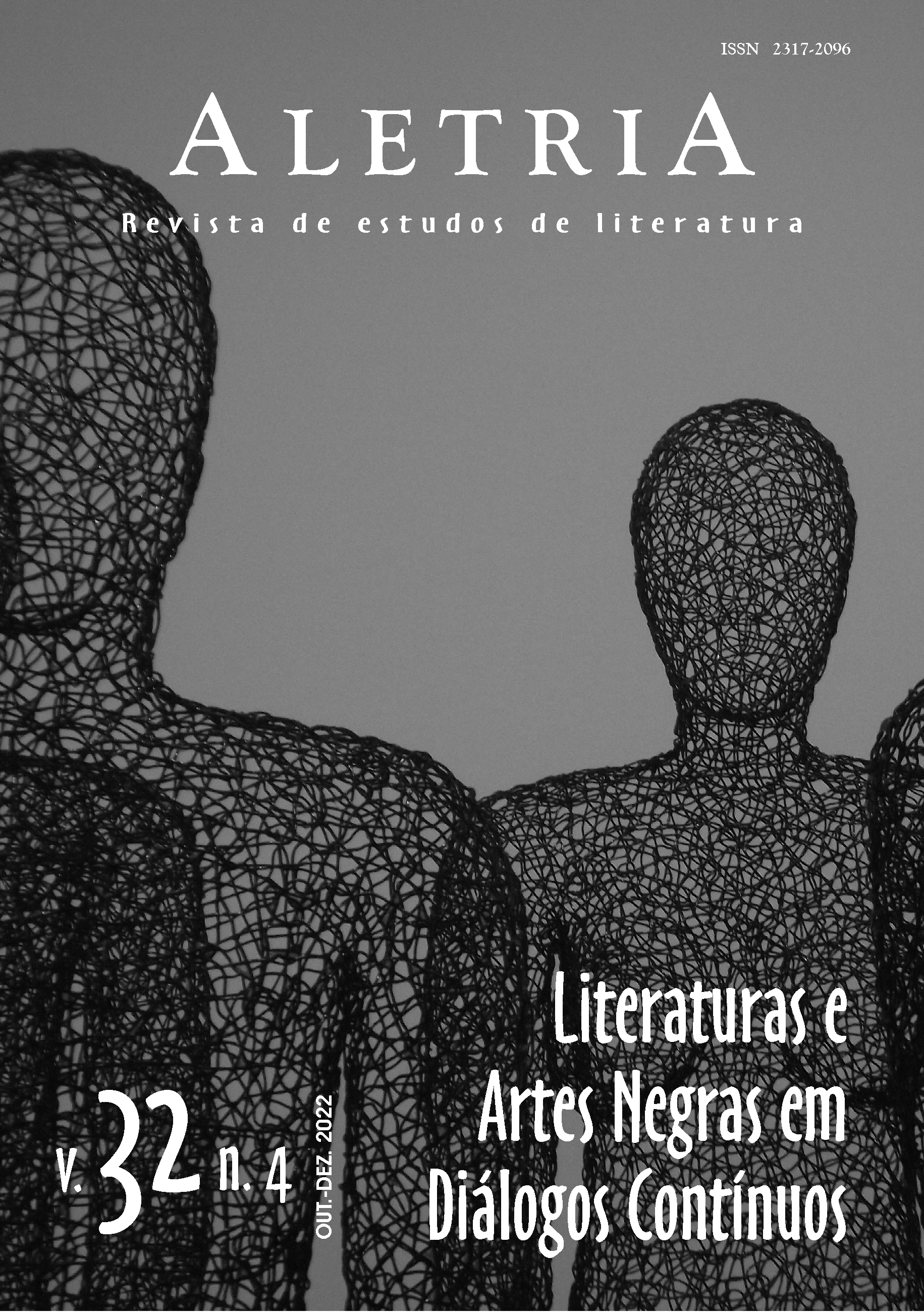Lamento trágico masculino
Os Persas de Ésquilo
DOI:
https://doi.org/10.35699/2317-2096.2022.40077Palabras clave:
tragédia grega, Ésquilo, Os Persas, lamento trágico, lamento ritual, lamento masculinoResumen
Neste artigo investigo os cantos de lamento representados na tragédia Os Persas, de Ésquilo. Para abordar tensões de gênero presentes, principalmente no lamento final da peça, bastante intenso, reavalio a posição de Hall (1989, 1995, 1996). Hall defende uma efeminação representativa, beirando a histeria, do coro e de Xerxes. Parto da crítica de Suter (2008), cujos argumentos me parecem convincentes no sentido de revermos interpretações usuais sobre lamentos masculinos nas tragédias atenienses. Os termos de identificação dos lamentos são os dispostos na tese de Wright (1986). Considero os contextos cultural e literário de Os Persas, em uma perspectiva histórico-comparada, testando a possibilidade colocada por Suter de que uma leitura genérica da forma do lamento aliada a uma leitura gendrada de sua função colabore ao entendimento das cenas de lamentos trágicos. Ao final, proponho minha hipótese de leitura para a função do lamento final na peça.
Descargas
Referencias
AESCHYLUS; GARVIE, Alexander F. Aeschylus Persae: with introduction and commentary by A.F. Garvie. Oxford: Oxford University Press, 2009.
ALEXIOU, Margaret. The Ritual Lament in Greek Tradition. 2. ed. Lanham: Rowman & Littlefield, 2002.
BACHVAROVA, Mary. Summerian Gala Priests and Eastern Mediterranean Returning Gods: Tragic Lamentation in Cross-Cultural Perspective. In: SUTER, Ann. (ed.). Lament: Studies in the Mediterranean and Beyond. Oxford: Oxford University Press, 2008, p. 18-52.
CAIRNS, Francis. Generic Composition in Greek and Roman Poetry. Edimburgo: Edinburgh University Press, 1972.
FISHMAN, Andrea. Thrênoi to Moirológia: Female Voices of Solitude, Resistance, and Solidarity. Oral Tradition, Cambridge, v. 23, n. 2, p. 267-295, 2008.
HÅLAND, Evy Johanne Rituals of Death and Dying in Modern and Ancient Greece: Writing History from a Female Perspective. Newcastle: Cambridge Scholars Publishing, 2014.
HALL, Edith. Asia unmanned: Images of victory in classical Athens. In: RICH, John; SHIPLEY, Graham. (ed.). War and Society in Greek World. Londres: Routledge, 1995, p. 108-133.
HALL, Εdith. Aeschylus: Persians. Warminster: Aris & Phillips, 1996.
HALL, Εdith. Inventing the Barbarian: Greek Self-Definition Through Tragedy. Oxford: Clarendon Press, 1989.
HARRISON, Thomas. The Emptiness of Asia: Aeschylus’ Persians and the history of the fifth century. Londres: Bloomsbury Publishing, 2019.
HOLST-WARHAFT, Gail. Dangerous Voices: Women’s Laments and Greek Literature. Londres: Routledge, 1995.
LOURENÇO, Frederico. The Lyric Metres of Euripidean Drama. Coimbra: Imprensa da Universidade de Coimbra, 2012.
MCCLURE, Laura. Spoken Like a Woman: Speech and Gender in Athenian Drama. Princeton: Princeton University Press, 2009.
PAPADOGIANNAKI, Eleni. Ο θρήνος στους Πέρσες του Αισχύλου: οι απαρχές του επιτάφιου λόγου. 2005, p. 77-89.
PREZOTTO, Joseane Mara. Censura e subversão: lamentar Adônis em Lisístrata. In: POMPEU, Ana Maria César; PREZOTTO, Joseane Mara; ALMEIDA, Solange Maria Soares de; ARAÚJO, Orlando Luiz de. (org.). As mulheres de Aristófanes: revolução e recepção. São Paulo: Pimenta Cultural, 2022, p. 81-110.
RAMSEY, Reuben. Aeschylus as Oral Performance: Rhythm, Structure and Meaning in the Persians. 2016. Tese (Doutorado em Filosofia) – Universidade de Newcastle, Austrália, 2016.
SAMET, Nili. Lament, Lamentation, Ancient Near East and Hebrew Bible. In: FUREY, Constance M; LEMON, Marcus; MATZ, Brian; RÖMER, Thomas; SCHRÖTER, Jens; WALFISH, Barry Dov; ZIOLKOWSKI, Eric. (ed.). Encyclopedia of the Bible and Its Reception. Berlim: De Gruyter, 2017, p. 686-92. (Jesus – Kairos, v. 14)
SOUZA, Camila Diogo de; DIAS, Carolina Kesser Barcellos. The iconography of death: continuity and change in prothesis ritual through iconographical techniques, motifs, and gestures depicted in Greek pottery. Classica – Revista Brasileira De Estudos Clássicos, v. 31, n. 1, p. 61-87, 2018.
SUTER, Ann. Male Lament in Greek Tragedy. In: SUTER, Ann. (ed.). Lament: Studies in the Ancient Mediterranean and Beyond. Oxford: Oxford University Press, 2008.
VIEIRA, Trajano (Trad,). Os Persas: de Ésquilo. São Paulo: Perspectiva, 2013.
WEST, Martin. Ancient Greek Music. Oxford: Clarendon Press, 1992.
WRIGHT, Elinor Scollay. The Forms of Lament in Greek Tragedy. 1986.Tese (Doutorado em Estudos Clássicos) – Universidade de Pensilvânia, Filadélfia, 1986.
Descargas
Publicado
Número
Sección
Licencia
Derechos de autor 2022 Joseane Mara Prezotto (Autor)

Esta obra está bajo una licencia internacional Creative Commons Atribución 4.0.
Authors who publish with this journal agree to the following terms:Authors retain copyright and grant the journal right of first publication with the work simultaneously licensed under a Creative Commons Attribution Non-Commercial No Derivatives License that allows others to share the work with an acknowledgement of the work's authorship and initial publication in this journal.Authors are able to enter into separate, additional contractual arrangements for the non-exclusive distribution of the journal's published version of the work (e.g., post it to an institutional repository or publish it in a book), with an acknowledgement of its initial publication in this journal.Authors are permitted and encouraged to post their work online (e.g., in institutional repositories or on their website) prior to and during the submission process, as it can lead to productive exchanges, as well as earlier and greater citation of published work (See The Effect of Open Access).









